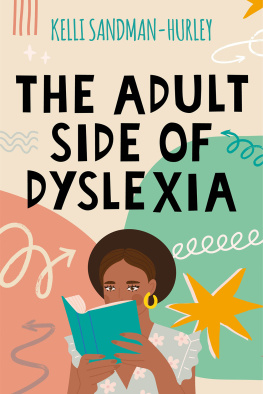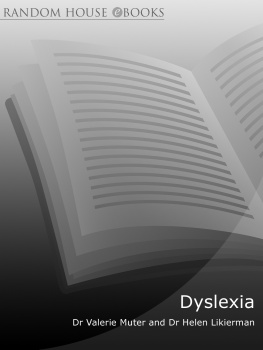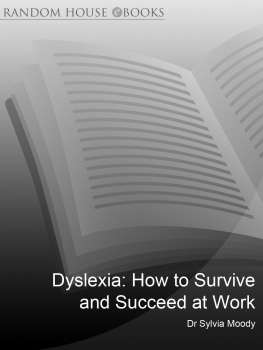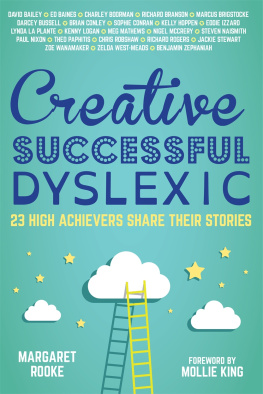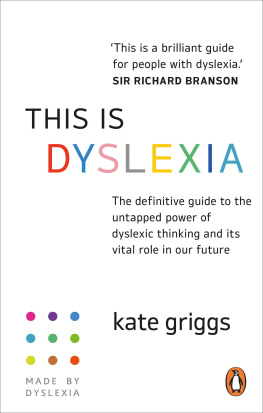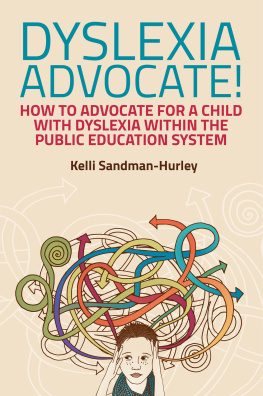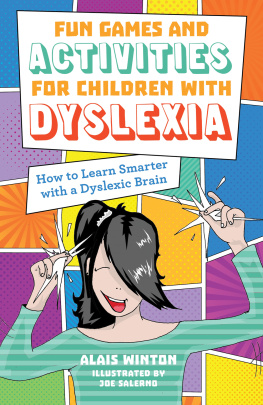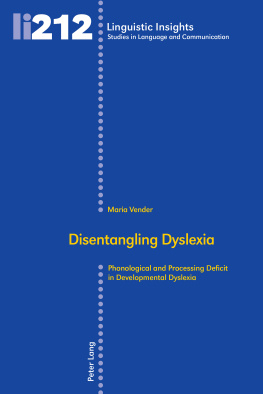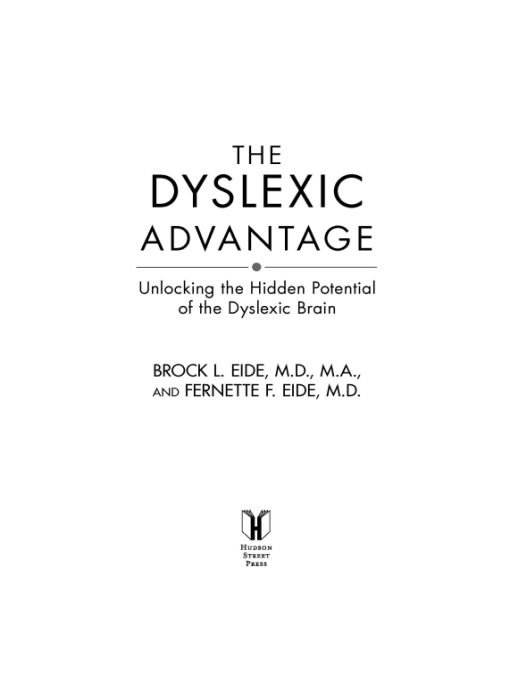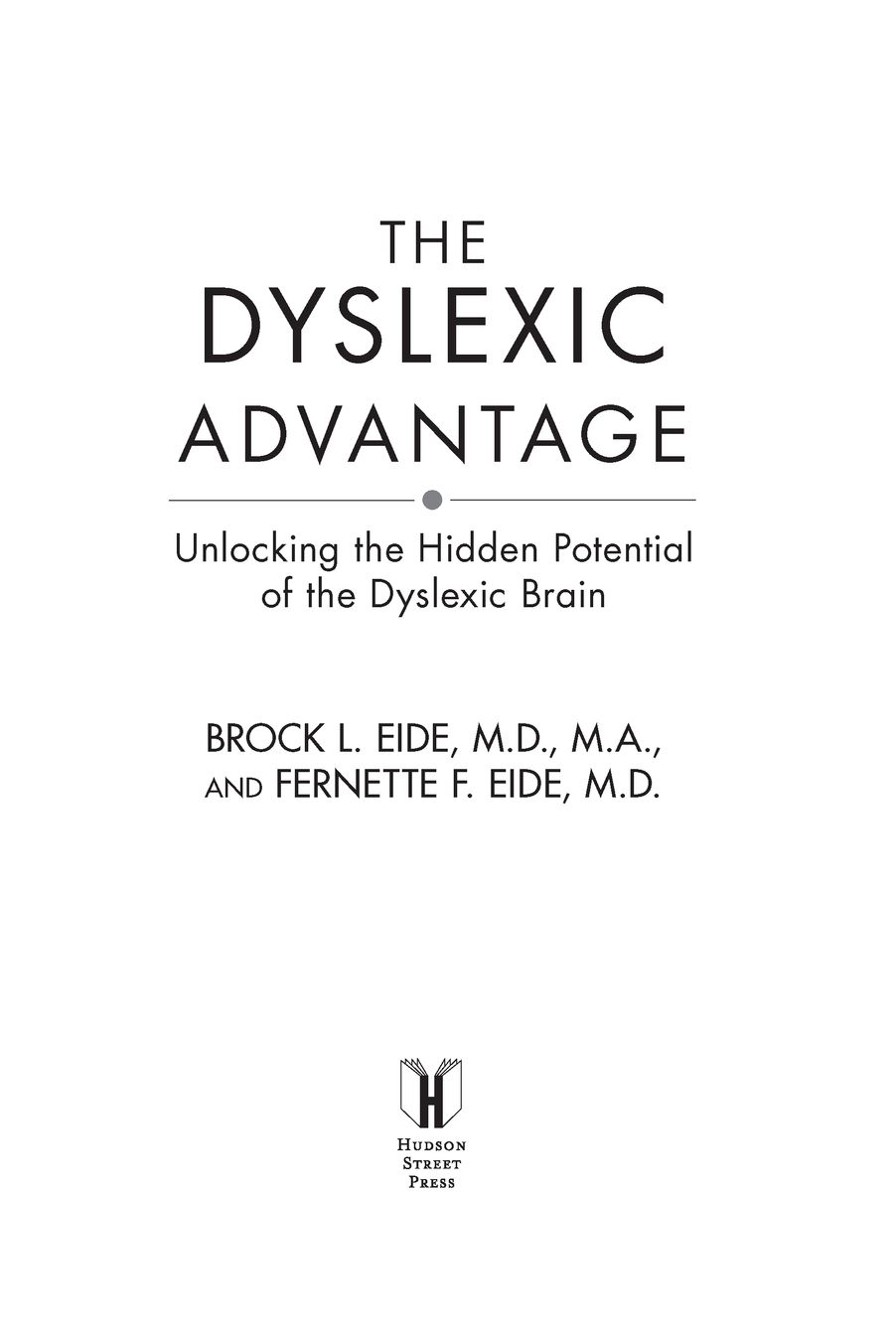Table of Contents
To Karina (Braveheart): Youre an amazing person and an unending source of joy, and we love you with all our hearts.
ACKNOWLEDGMENTS
Weve been truly blessed during the writing of this book by the support and assistance of many remarkable people, whose help we are pleased to acknowledge.
First, we wish to thank our wonderful agent, Carol Mann, who in a very difficult market managed not only to get us a choice of great offers but also helped guide us to the publisher of our dreams. Thanks for watching out for us in so many ways.
And to our team of dreamworthybut fortunately realcolleagues at Hudson Street Press/Penguin, words are not adequate to express our thanks for your input and support throughout this project. To editor in chief Caroline Sutton, we express our deepest thanks for sharing and supporting our vision, and for assembling such a fantastic team at Hudson Street. To Meghan Stevenson, whose equally astonishing talents as editor and motivational coach of the tough love school contributed immeasurably not only to the clarity and structure of the manuscript but also to our inordinate fear of missing deadlines (by too much... ), youre a true star of your profession, and it has been an honor to work with you. To Courtney Nobile, our lead publicist, and publicity director Liz Keenan, we feel enormously privileged to be backed up by publicists whose enthusiasm is equaled only by their expertise. To Jason Johnson and Eve Kirch, who were responsible for the wonderful design work on the outside and the inside of the book, respectively, thank you for your beautiful and creative contributions. And to John Fagan and Ashley Pattison in marketing, production editor Katie Hurley, copy editor Sheila Moody, and managing editor Susan Schwartz, our deepest thanks for all your work on our behalf. Also, wed like to thank Bonnie Bader at Grosset & Dunlap at Penguin Young Readers for passing the book on to Henry Winkler so quickly.
We also wish to offer our profoundest thanks to the families and individuals whove come to our clinic and shared their stories and their lives with us. The real work was yours. All we did was listen.
To all those who agreed to be interviewed for this book, to share their stories and expertise, we offer our fullest thanks. The chance to talk to so many accomplished and creative people was one of our most enjoyable professional experiences ever.
Our special thanks to Tom (Thomas G.) West, whos worked harder and longer than anyone to promote the idea that dyslexia has advantages. Ever since we first met Tom hes been unstinting in his kindness and encouragement toward us. Without any question Tom is one of the most generous and selfless individuals weve ever been privileged to know, and the full extent of his impact is only just beginning to be felt.
And to all of our family and friends, old and new, whove become a part of Karinas support community: without your helpemotional, spiritual, professional, and financialthis book could have never been written. Thank you from the bottom of our hearts.
I would now like to turn to... the advantages of the predisposition to dyslexia.... [To] the apparently paradoxical notion that the very same anomalies... of the brain that have led to the disability of dyslexia in certain literate societies also determine superiority in the same brains. We can, thus, speak of a pathology of superiority without fear of being contradictory.
Norman Geschwind, M.D., Why Orton Was Right
PREFACE
In 2004, a top business school in England sent out a press release with the headline: Entrepreneurs five times more likely to suffer from dyslexia. Its subheading went on to ask, What makes Sir Richard Branson, Sir Alan Sugar, and Sir Norman Foster special?
The answer, as revealed in the body of the press release, was that each of these highly successful entrepreneurs also suffered from dyslexia, a condition researchers at the school found to predispose individuals with dyslexia quite strongly to entrepreneurial success.
Just how successful are the particular entrepreneurs that they cited? At last count, Sir Richard Branson has a net worth of approximately US$4 billion. Alan Sugar, now Baron (Lord) Sugar of Clapton, has a net worth of US$1.2 billion. Norman Foster, now Baron (Lord) Foster of Thames Bank, has a comparatively smaller fortune of only US$400 millionthough he does have the consolation of being one of the worlds most admired and distinguished architects.
In light of the tremendous success enjoyed by these entrepreneurs, it seems rather odd to describe them as suffer[ing] from dyslexia. Yet as almost anyone with dyslexia can tell you, being dyslexic really can involve a great deal of suffering: like the suffering of constantly failing at skills others master with ease; the ridicule of peers and classmates; or exclusion from classes, schools, or careers one would otherwise pursue. These experiences can all involve sufferings of the cruelest sort. Yet its equally clear when we examine individuals with dyslexiawhen we see how they think and what they can do and the often remarkable persons they becomethat in many respects suffering from dyslexia is suffering of a most unusual kind.
This book isnt about dyslexia, but about the kinds of individuals who are diagnosed with dyslexia. Its about the kinds of minds they have, the ways they process information, and the things they do especially well. Its not a book about something these individuals have. Its about who they are.
Most books on dyslexia focus on problems with reading and spelling. While these problems are extremely important, theyre not the onlyor even the most importantthings that individuals with dyslexia find critical for their growth, learning, and success.
As experts in neuroscience and learning disabilities, weve worked with hundreds of individuals with dyslexia and their families. In the process weve found that individuals with dyslexia often share a broad range of important cognitive features. Some of these features are learning or processing challengeslike difficulties with reading and spelling, rote math, working memory, or visual and auditory function. But others are important strengths, abilities, and talents; gifts we call the dyslexic advantage. While these features differ somewhat from person to person, they also form recognizable patternsjust as the different musical works of Mozart are distinguishable yet recognizably the work of the same composer.
Traditionally, attempts to understand dyslexia have focused almost entirely on problems with reading, spelling, and other academic skills. As a result, little attention has been paid to the things individuals with dyslexia do especially wellparticularly once theyve become adults. In our opinion, this is a grave mistake. Trying to understand what dyslexia is all about while overlooking the talents that mature individuals with dyslexia characteristically display is like trying to understand what its like to be a caterpillar while ignoring the fact that caterpillars grow up to be butterflies.
As well show you in this book, the brains of individuals with dyslexia arent defective; theyre simply different. These wiring differences often lead to special strengths in processing certain kinds of information, and these strengths typically more than make up for the better-known dyslexic challenges. As well show you in this book, by learning how to recognize, nurture, and properly use these strengths, individuals with dyslexia can be helped in their efforts to achieve success and personal fulfillment.


